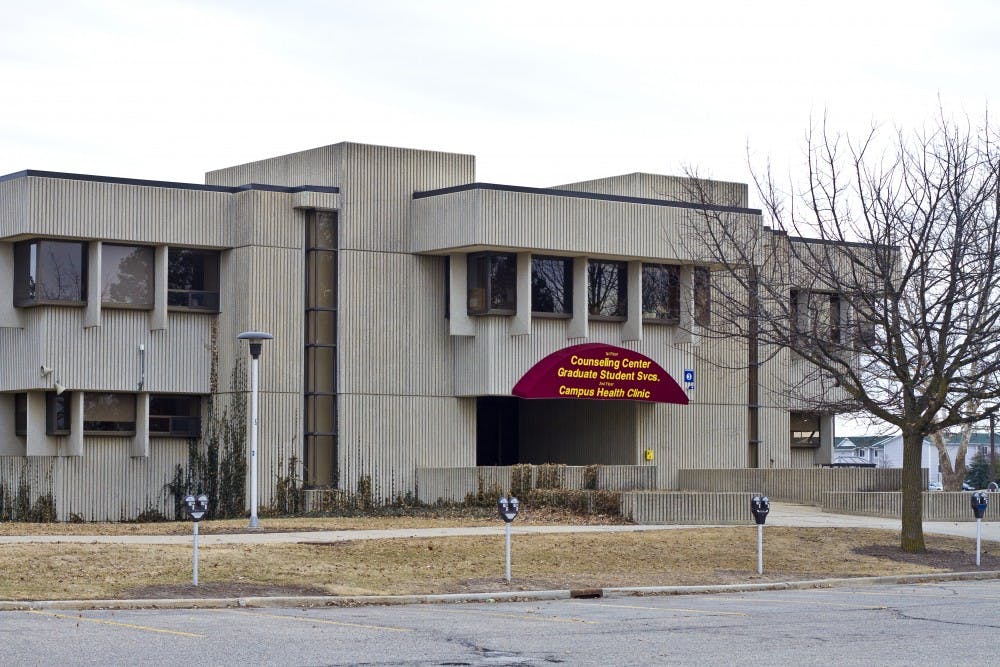On campus resources help fight mental illness

Foust hall, located across from the Health Professions Building, provides many opportunities for student to receive counseling and health services.
A National Epidemiologic Study on Alcohol and Related Conditions revealed almost half of college-age individuals had a diagnosable psychiatric disorder in the past year.
Sandusky junior, and secretary of Central Michigan University's chapter of To Write Love on Her Arms, Lindsay Ball said one of the main reasons mental illnesses among 18 to 25-year-olds may be because of changes occurring in their lives. These changes are handled differently and hold potential to trigger old issues to resurface or new issues to arise.
“I think a lot of people think it’s one traumatic thing that sparks the spiral downward, but it’s usually a bunch of little things that can be too much for someone,” Ball said. “Any kind of stressor, from school to relationships, it’s kind of like a disease. It can be biological or hereditary. There’s a whole spectrum of things that can affect it, but it’s often a lot of things that spark it.”
There are groups on campus dedicated to raising awareness and providing assistance to those struggling, including To Write Love, a group that provides help to people struggling with addiction, depression, self-injury and thoughts of suicide, and Yellow Ribbon, a suicide prevention group.
Despite the high numbers associated with mental illnesses among college-age students, a survey revealed less than 25 percent of the individuals suffering from a mental illness actually sought treatment.
“Not everyone may feel comfortable seeking out help and getting diagnosed,” psychology professor Stuart Quirk said.
A reason they may not feel comfortable reaching out for help may be because of the negative stigma attached to mental illnesses, Ball said. Because of this stigma, students “don’t realize that what they’re feeling isn’t normal” and assume that the feelings and issues will eventually just pass.
Another reason students may not seek help is out of fear of judgment from peers.
“It becomes this big stigma that everyone is dealing with, but no one knows about. I think it’s the idea that they don’t want to get help because of what people will think if they come out and say they’re struggling,” Ball said. “The stigmas are all negative, so that’s how people view mental illnesses. Mental illnesses aren’t positive, but they’re not scary or unusual."
There has been an increase of mental health services within the past three to four years, according to counseling center data. The Counseling Center, Human Development Clinic and Psychological Training and Consultation Center are also available for those seeking help.
"It takes a lot of strength and courage to face and deal with one's problems," said director of the counseling center Ross Rapaport. "That's a sign of strength, not a sign of weakness. We truly believe that here. We all have problems sometimes, we all need help sometimes."
Emergency sessions are available at the counseling center throughout the day. If all slots are full, they will find a way to work the student in. The center is open from 8:00 a.m to 5:00 p.m Monday through Friday.
If an emergency occurs after those times, a 24-hour Listening Ear Crisis and Referral hotline is available at 989-772-2918.




